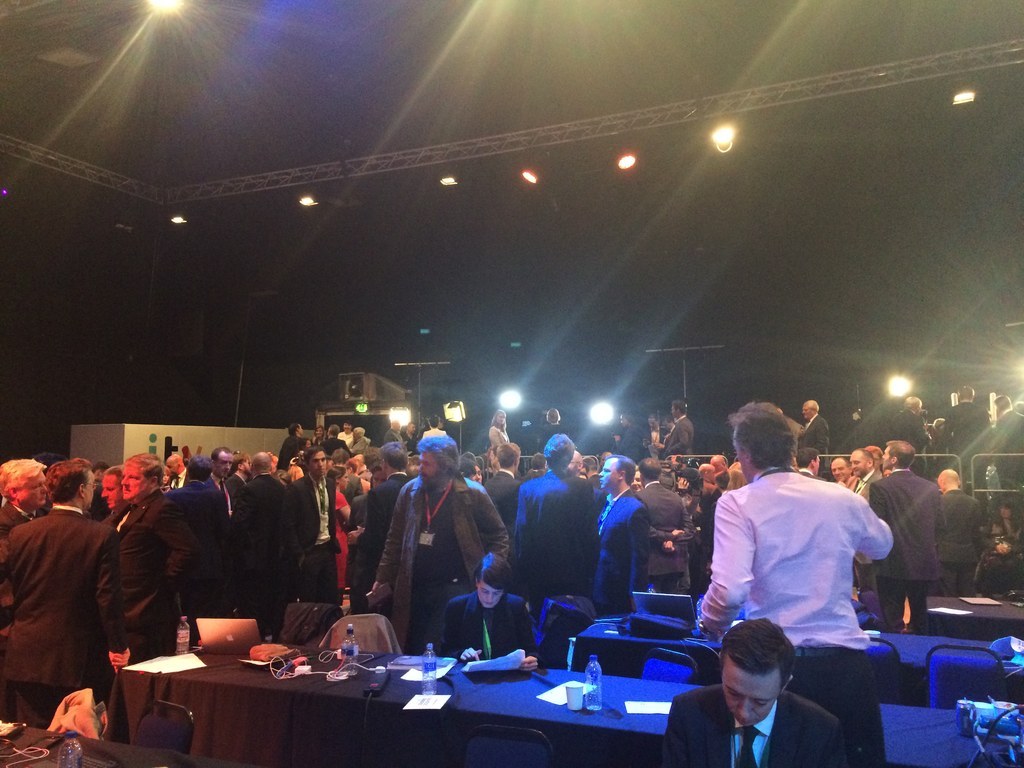Away from the glamour of tonight's TV debate, there was a room nearby full of journalists talking about politics and eating crisps.
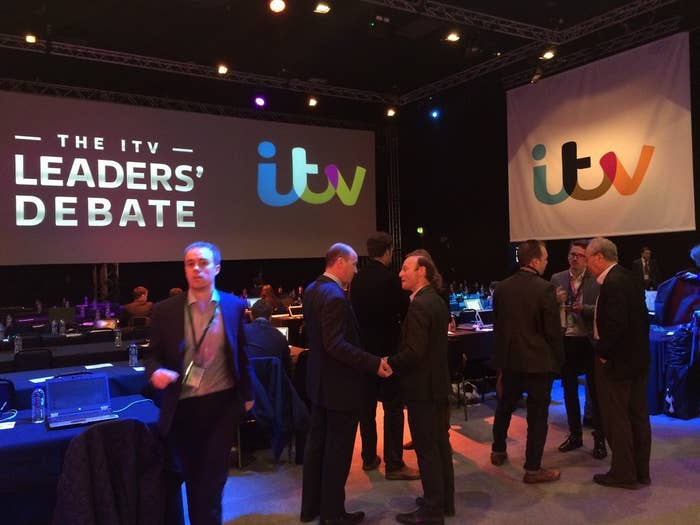
This is the "spin room", where political press officers try to tell journalists what to think.
Just rows and rows of journalists creating news, sat in some dark room, working away like the Gringotts goblins from Harry Potter.
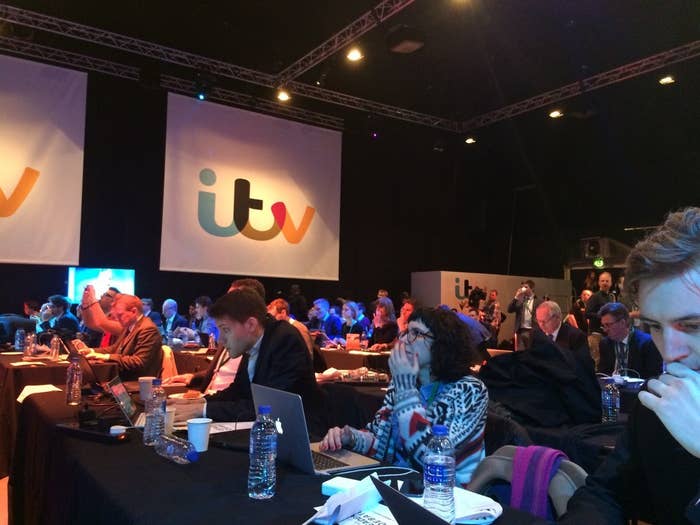
At the start, we were given a lanyard, some information, and there was a rush to get the prime seats in front of this bloody massive television.
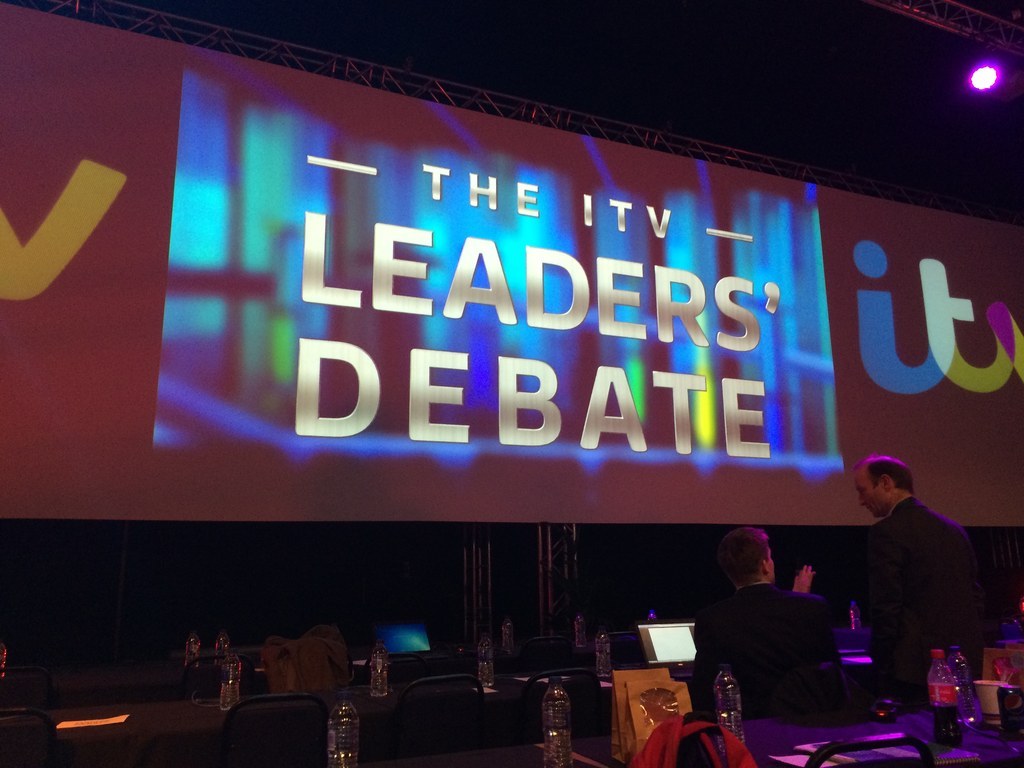
I elbowed several award-winning journalists out of the way to make sure I got a seat in row three. Not bad – not bad at all.
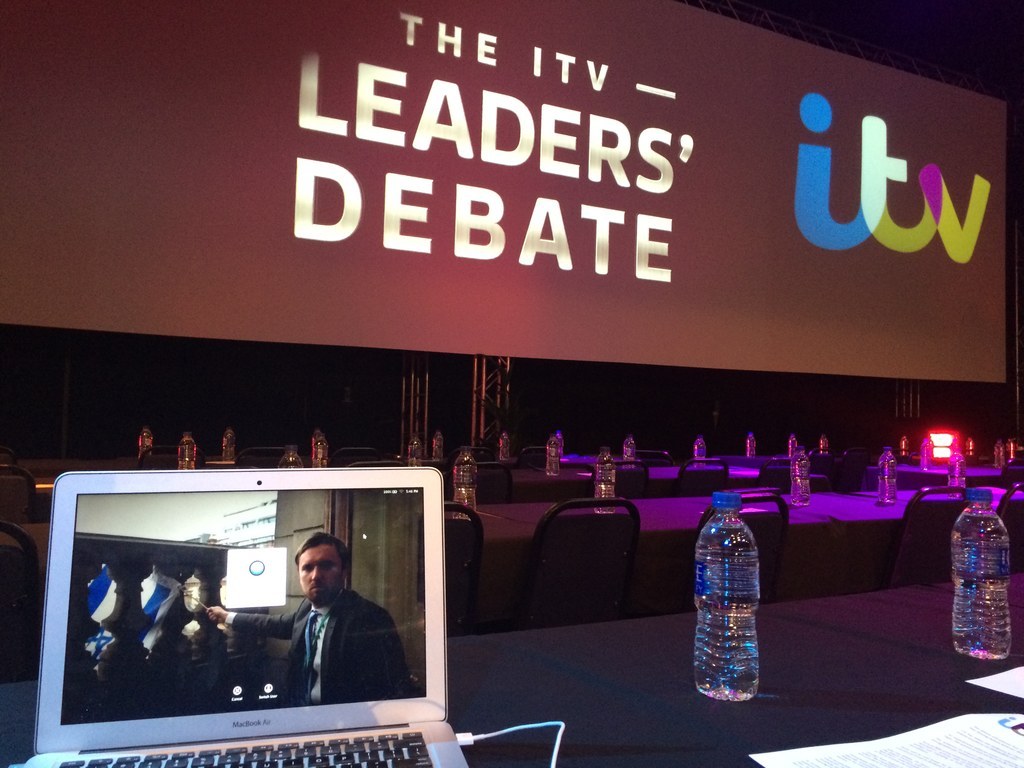
Gradually, as the room filled up, I noticed that distinct groups started to form around the room.
I was surrounded by online journalists. The print journalists sat on the right of the TV screen, and the broadcasters sat at the back. As far as I know, none of this was planned – it just happened naturally, like the yearly migration of different types of sea creature who know exactly where they have to go.
With our seats sorted out, attention turned towards the snack room. It was all free and every journalist ate at least three of these meanly-sliced lemon tarts.
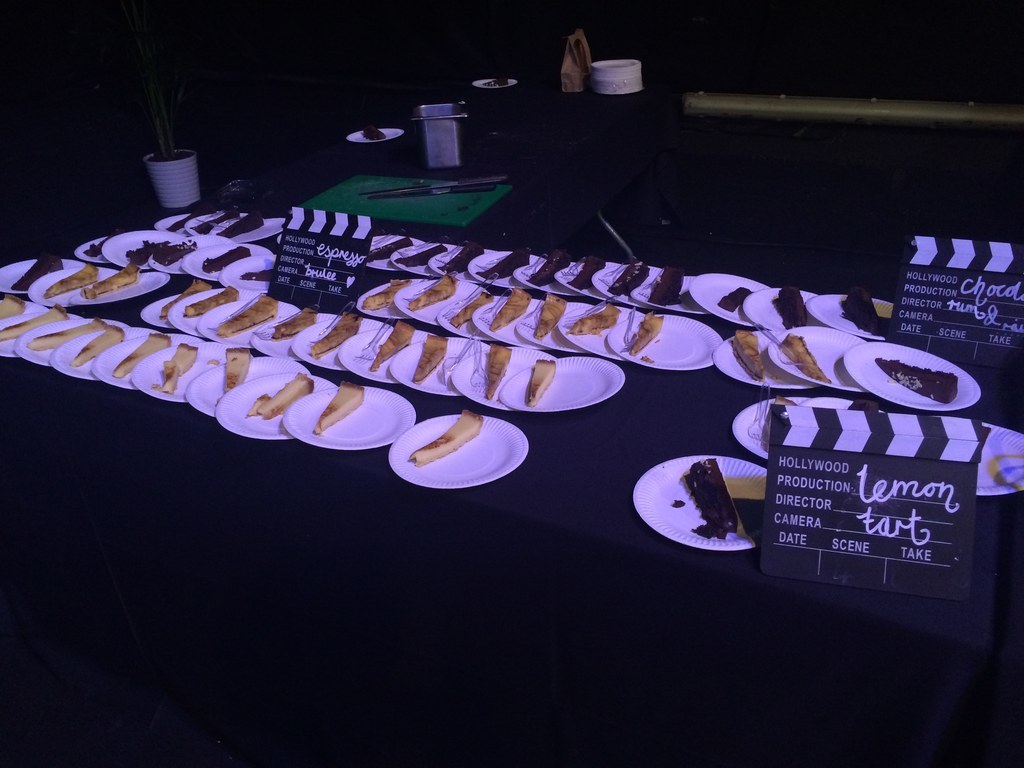
There was also a small bird's nest, carpeted in astroturf, full of napkins.
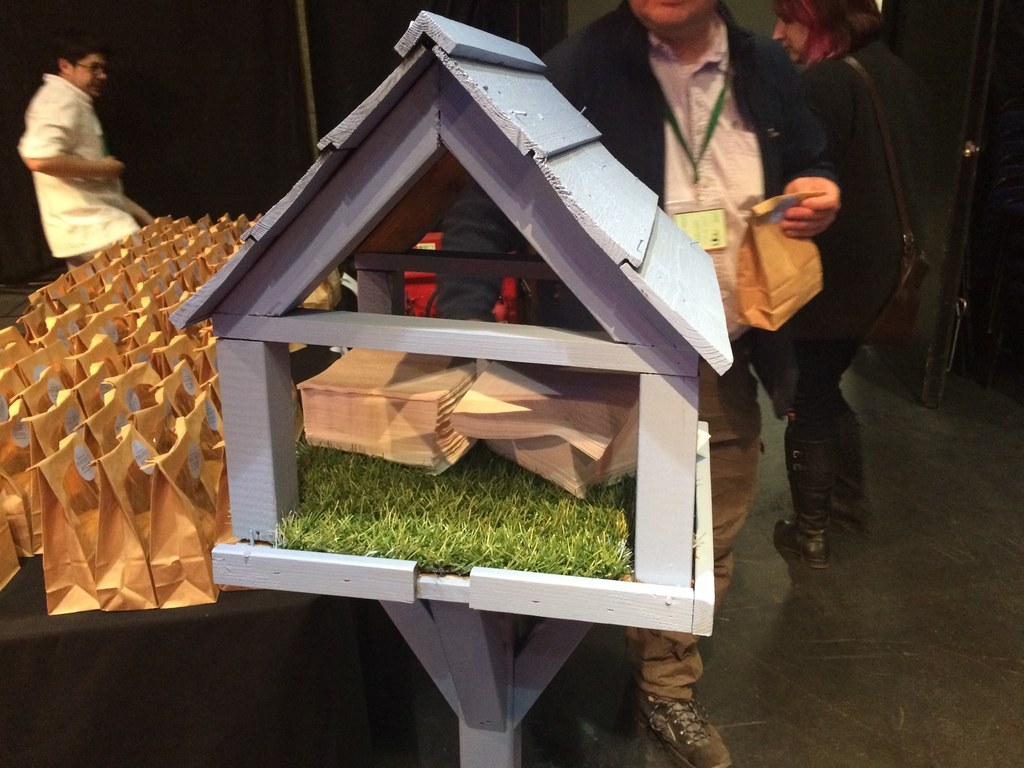
In an outrageous snub to the SNP's Nicola Sturgeon, there was no Irn Bru on offer.
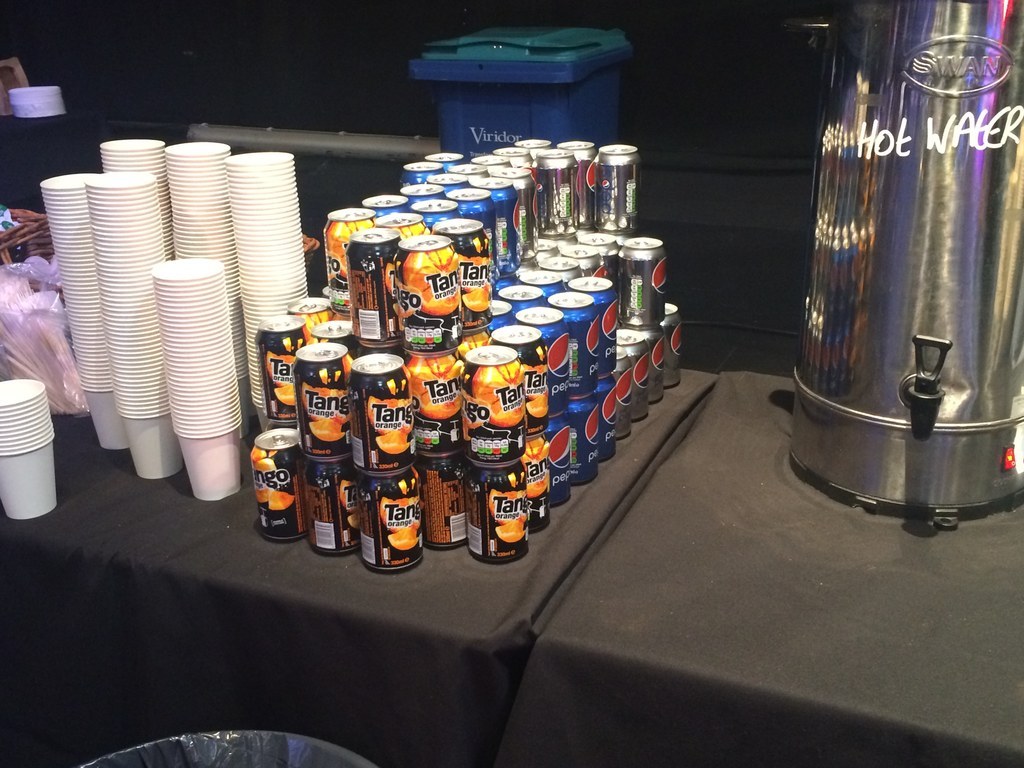
The SNP assured me there was Irn Bru in the back rooms.
@JamieRoss7 plenty Irn bru provided in Team @theSNP room!
All the journalists were fed to keep them quiet, and some "pre-spinning" began.
Huddles of press staff from each party, and a few politicians, stood at the back of the room waiting for journalists to ask them if they felt confident of victory tonight. Unsurprisingly, all of the party staff were.
Everyone said something along the lines of: "We're looking forward to it, it's a really great opportunity for us to speak to real people out there. Our leader's not nervous at all, he/she will be brilliant."
Then the debate began – and everyone stopped speaking, instead turning to typing.
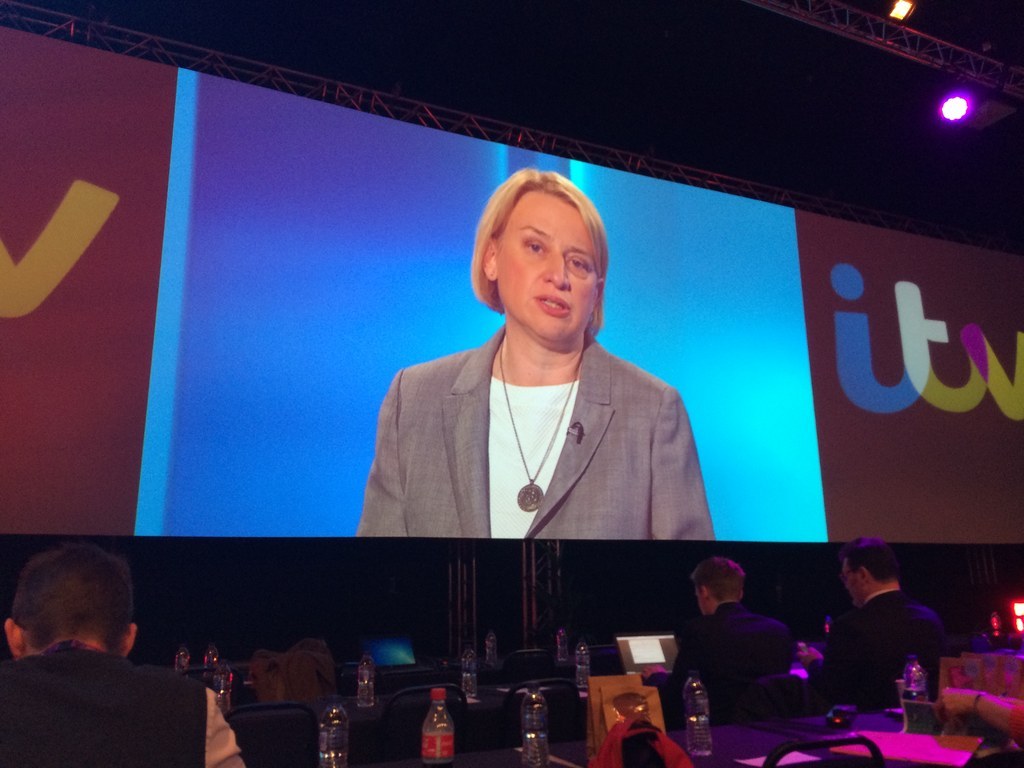
It was bizarre. There was a clacking of keys, an occasional mutter, and, every now and then, the room laughed together as we spotted something on Twitter at the same time. This got a particularly big laugh.
You said we were going to Nando's Johnny #leadersdebate
This went on for about an hour – typing, laughing, and an occasional moan when a line was said which everyone in the room had heard many hundreds of times before.
At one particularly exciting moment, everyone went "Ooooo!" when Clegg started attacking Cameron.
Then, at half time, some fairly gentle spinning began as the journalists approached the party staffers at the back of the room.
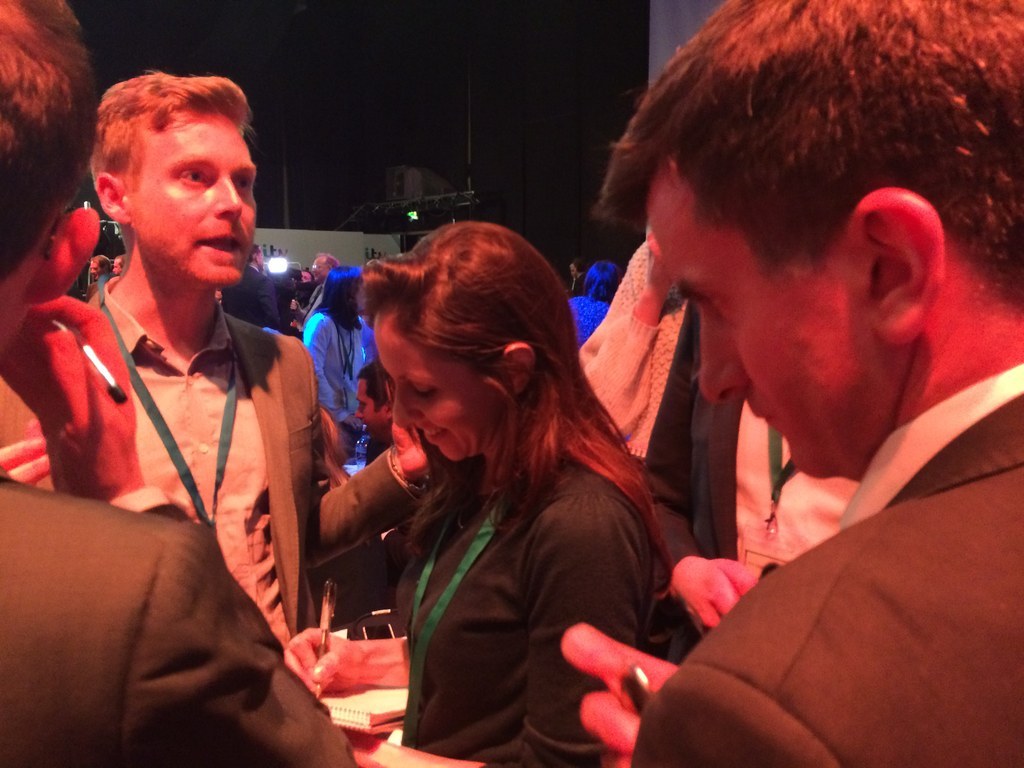
Tomorrow's headlines were being written before the debate had even finished.
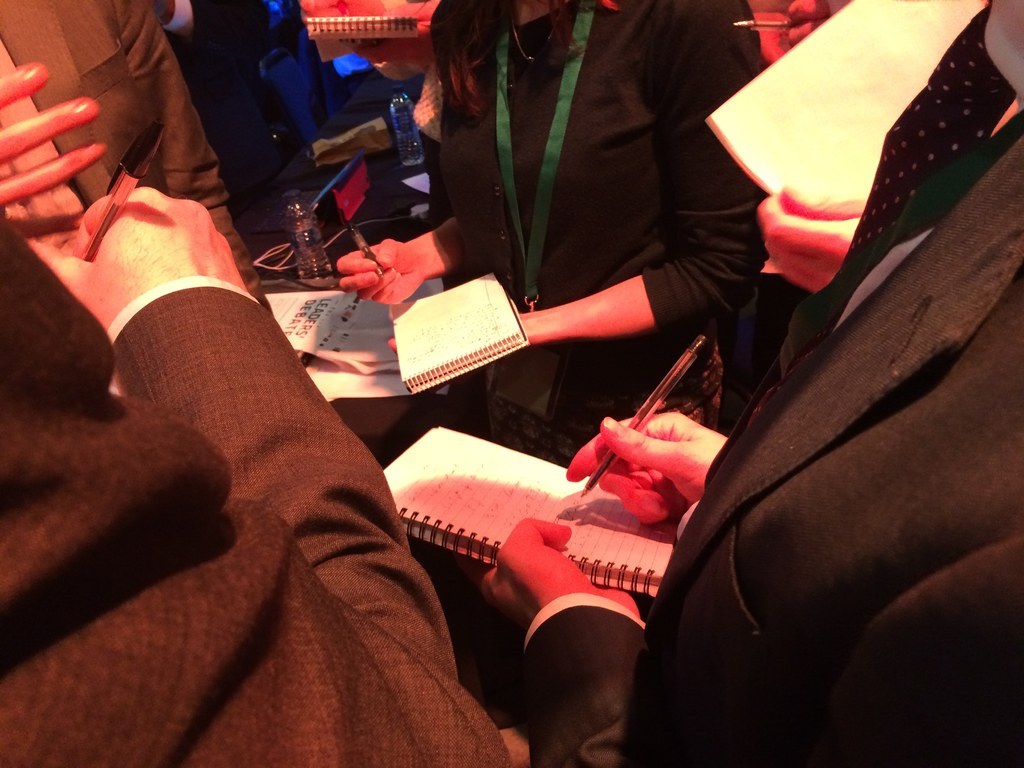
The SNP thought they were doing brilliantly.
The SNP camp sound happy – "Have you seen all the people from the rest of the UK saying they wish they could vote for us?" #leadersdebate
But so did everyone else, because they want you to tell everyone else that they're doing brilliantly.
Lib Dems tell us that Nick Clegg is "the only one actually answering any questions". #leadersdebate
Then we got back to the action – and another hour of silence punctuated by occasional snorting, laughing, and sighing.
Big laugh here at "I want to know what everyone thinks about health tourism". Farage providing the journalists' entertainment so far.
Sometimes the parties applauded themselves in the room, in the hope that it would make their leader's point sound better.
UKIP's Patrick O'Flynn cheers from the back at the room at Farage's latest answer. #leadersdebate
But the reaction was most obvious when things went down badly in the room, like when Farage started talking about immigrants with HIV.
Gasps in the room from Farage's HIV stuff here. #leadersdebate
Just under half an hour before the debate ended, the print journalists gave up listening and went to get their stories out before their deadlines.
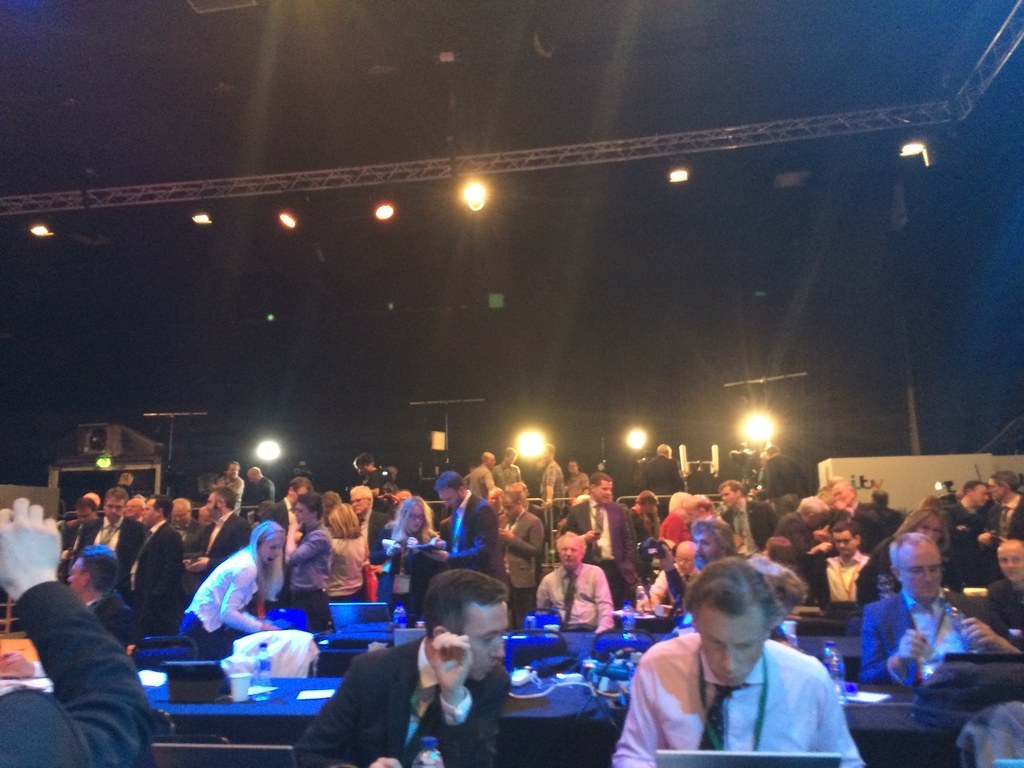
Meanwhile, party press officers were still sending minute-by-minute updates to journalists via email – a bit like a football liveblog from 2007.
Our thoughts and prayers are with the party press officers sending us emails every 30 seconds. #leadersdebate
Hundreds of journalists descended on hundreds of press officers and politicians, trying to get a fresh quote out of someone – anyone.
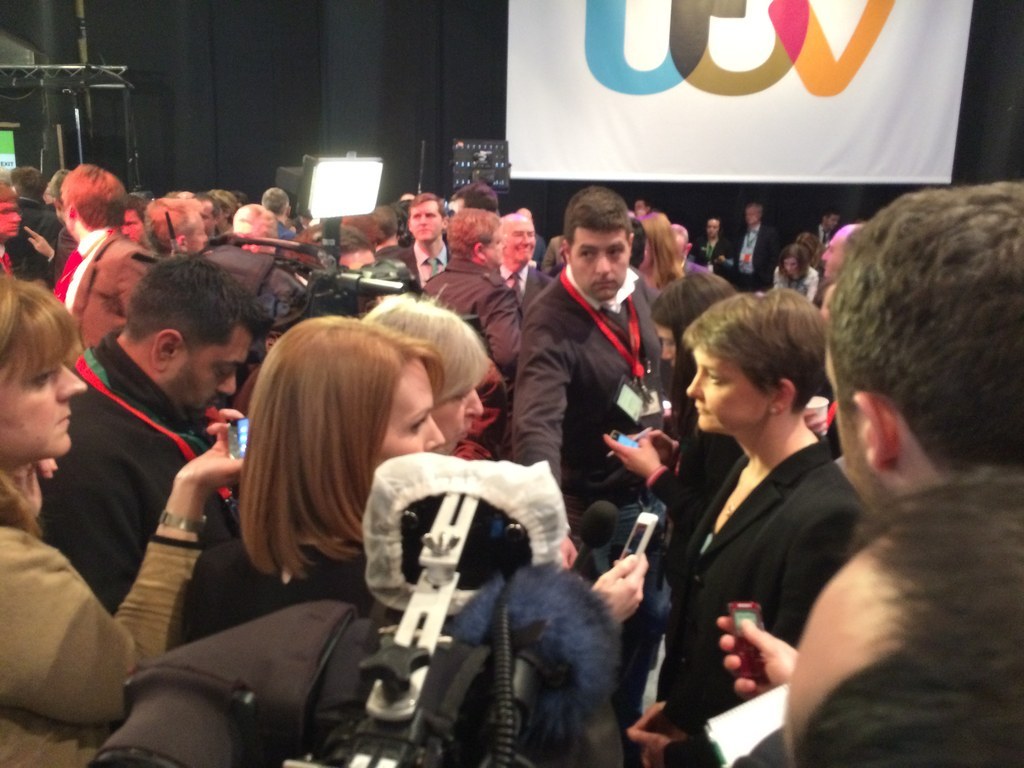
Osborne really was fascinating to every single person in the room – Theresa May walked by unnoticed, though she was eventually grabbed by the BBC to go on its news channel.
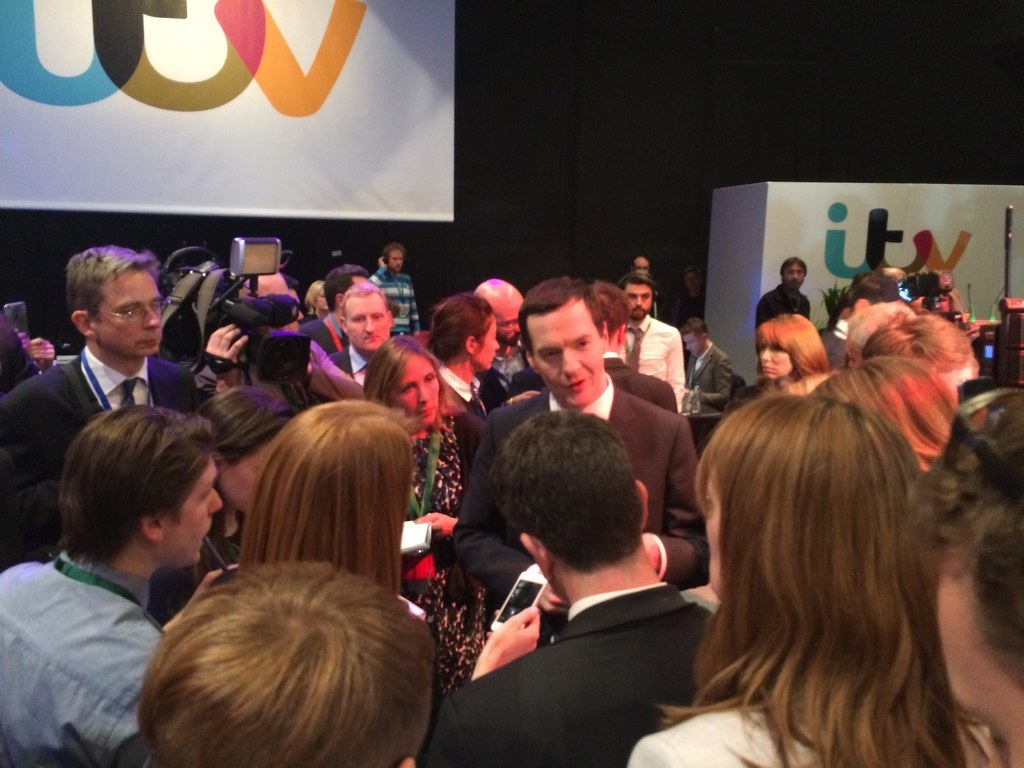
At the time of writing, the journalists are still circling their party contacts looking for news.
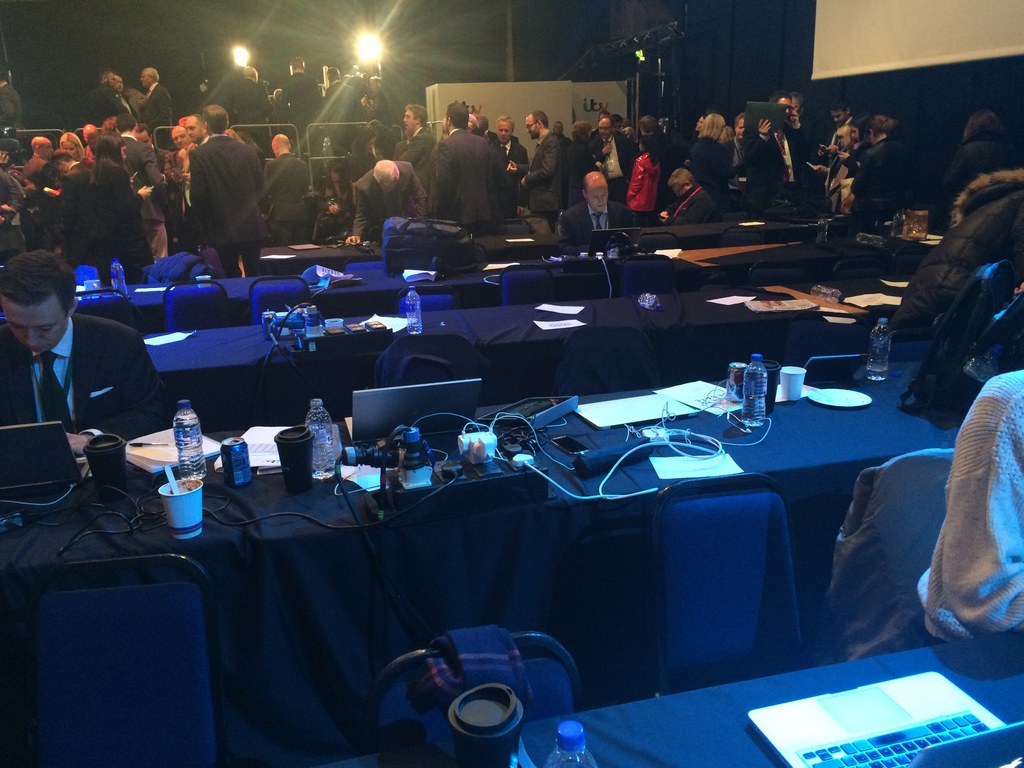
But almost every bit of political news you read tomorrow will have been shaped here.
